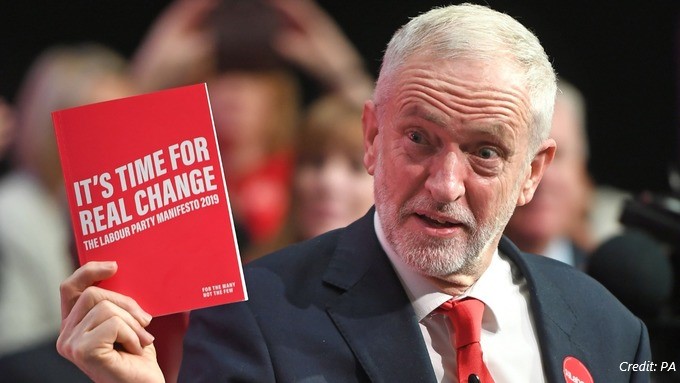Labour’s 38 steps to solving the housing crisis
The word “housing” appears 38 times in Labour’s 107-page manifesto, and the party’s plans are nothing if not ambitious. It’s clearly a top priority for the party, its members and its potential supporters.
The headlines are dramatic – 150,000 new affordable homes a year by 2024, £1bn a year to councils to fight homelessness, ending the Right to Buy, scrapping the bedroom tax – but there is a lot of detail still to be worked through for developers and planners alike.
The housing industry will need to maintain a close dialogue with political leaders should Labour win the election or become the largest party. Their manfesto’s plans are challenging to say the least, with many analysts asking if there is even the capacity to deliver.
For instance, Labour has announced it intends to introduce a “use it or lose it” land tax on developers whose housing schemes are stalled, but details of how this would work are sketchy at best. Would developers be punished if councils were slow to agree conditions, or they couldn’t find enough builders, carpenters or electricians to do the work in a post-Brexit Britain?
With the party also announcing that it will “protect the green belt” and prioritise building on brown field sites, questions are likely to arise over where all the new housing will go, and what role the local council – or neighbours – will have over deciding where to build.
Housebuilders will also need to meet a “zero carbon standard”, that mean running a house will not generate any carbon at all – fossil fuel heating systems will be outlawed. Millions of existing homes will also be upgraded to make them more energy efficient. It’s not yet clear who will do the upgrades or where the heating systems will come from, let alone how they will be paid for.
Following concerns that social rents, set at up to 80% of market rents, are too much for many families, Labour will also scrap the current definition of “affordability”. But it’s not yet clear how cheaper rents can be delivered without making developments financially unviable or increasing public subsidies.
A question hangs over another promised initiative: the new English Sovereign Land Trust. This will be able to buy land cheaply for low-cost housing. Will landowners be forced to accept below market price for their land, and how will this affect the right to ownership?
Private landlords will also be nervous about proposals to allow councils to buy homes from landlords. Measures to introduce landlord licensing, create open-ended private tenancies, regulate short-term lets and introduce rent controls may also have an impact on the private rented sector.
Labour are behind in the polls, but proposals to protect tenants and provide more and cheaper housing for its traditional voters are unlikely to go down badly among Labour’s traditional supporters.
Whether the initiatives are enough to give Labour the poll boost it needs to win – or even come close to winning – the election is too early to say.
But they lay down a challenge to the industry, and anyone who wants to stay ahead of the game will need to stay aware and maintain a close dialogue with Ministers and advisers alike.

Strategic land and site promotion
We work with strategic land developers and promoters, landowners and planning consultants to promote sites …

Energy and infrastructure
From new nuclear and unconventional gas to renewables, waste and airports, our team has worked …


